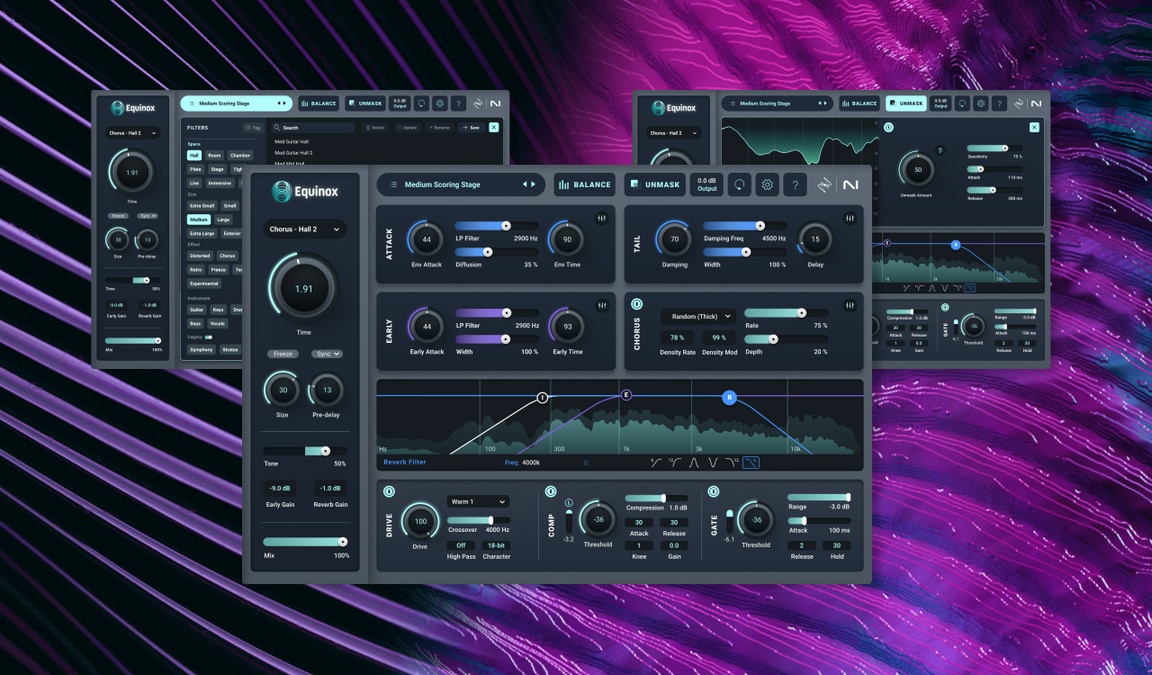5 Tips to Enhance Your Sound Design Skills
Are you trying to get into sound design? Are you trying to […]
The post 5 Tips to Enhance Your Sound Design Skills appeared first on Point Blank’s Online Magazine.
Eigen allows users to create their own custom reverbs and export them as impulse responses which can be used in convolution reverb plug-ins.
https://plus.pointblankmusicschool.com/
Are you trying to get into sound design? Are you trying to improve your already existing sound design skills? Sound design is the art and technique of creating sound for various media such as film, video games, television, and music. It involves using sound effects, music, and dialogue to enhance the overall experience of a production. At Point Blank, we teach our students how to use various tools and techniques to create and manipulate sounds, including digital audio workstations, synthesizers, and field recording equipment. Effective sound design can add depth, emotion, and impact to production and is an essential component of many forms of media. You can learn more about sound design by studying with us at our L.A. and London campuses.
Alright, here are 5 tips for enhancing your sound design skills:
1. Know your tools

Familiarize yourself with the software and equipment you’re using, so you can make the most of their capabilities. This includes understanding the features and functions of your tools, as well as learning how to use them effectively and efficiently. Whether you’re working with a digital audio workstation, synthesizer, or other tools, it’s important to have a good understanding of how they work and what they can do. This will help you get the most out of your sound design work and achieve the results you want.
2. Start with a clear plan

Before you start designing sounds, take some time to think about what you want to achieve. This will help you stay focused and avoid wasting time. Having a clear plan before starting your sound design work can help you stay organized and on track. This might include defining the type of sound you want to create, thinking about how the sound will be used, and considering the desired mood or atmosphere. By having a clear plan, you can prioritize your efforts and avoid getting bogged down in unproductive experimentation. Additionally, having a clear plan can also help you communicate your vision to others and collaborate effectively with others on a project.
3. Pay attention to detail

Small details can make a big difference when it comes to sound design. Pay attention to things like volume levels, panning, and filtering to create a polished, professional sound. Details such as volume levels, panning, and filtering can have a significant impact on the overall sound of your design. Paying attention to these details can help you create a well-balanced and polished sound that meets your goals and expectations. For example, adjusting the volume levels of individual sound elements can help create a dynamic mix, while proper panning can create a sense of spatial depth and movement. Similarly, filtering can be used to shape the frequency spectrum of a sound, giving it character and helping it fit into the mix. By paying attention to these and other small details, you can elevate your sound design work to a professional level.
4. Experiment

Don’t be afraid to try new things and experiment with different sounds and techniques. This is a great way to learn and discover new ways to design sounds. Experimentation is a crucial part of the sound design process. It allows you to explore new ideas and techniques, and to find unique and creative ways to solve problems and achieve your goals. Whether you’re working with existing sounds or creating new ones from scratch, experimentation can help you discover new ways to manipulate and transform sounds. It can also help you develop your skills and broaden your knowledge of sound design. So don’t be afraid to try new things, push the boundaries, and see what happens. You never know what you might discover!
5. Get feedback

Ask others for their opinions on your work. This can help you see your sound design from a different perspective and make any necessary improvements. Getting feedback from others can be extremely valuable for your work. It can give you a fresh perspective on your work and help you identify areas for improvement that you may have missed. By seeking out constructive criticism and suggestions, you can refine your work and ensure that it meets the highest standards. Feedback can come from a variety of sources, including peers, mentors, or clients. When seeking feedback, it’s important to be open-minded and receptive to suggestions, and to take the time to consider each piece of feedback before making changes to your work. This can help you create better sound designs and improve your skills over time.
So there you are! Five sound design tips for any music producer trying to enhance their sound design skills. And if you want to learn how to do sound design or take your skills to that next level, sign up for our Sound Design courses here at Point Blank.
Register to Access Free Courses, Plugins, Projects, Samples & More
When you register with Point Blank, you access an array of free sounds, plugins, online course samples and much more! Simply register below and visit our Free Stuff page to get your hands on a range of exclusive music-making tools and tutorials provided by the team. Fill your boots!
The post 5 Tips to Enhance Your Sound Design Skills appeared first on Point Blank’s Online Magazine.
This is a syndicated post. To read more, click the source link above.








